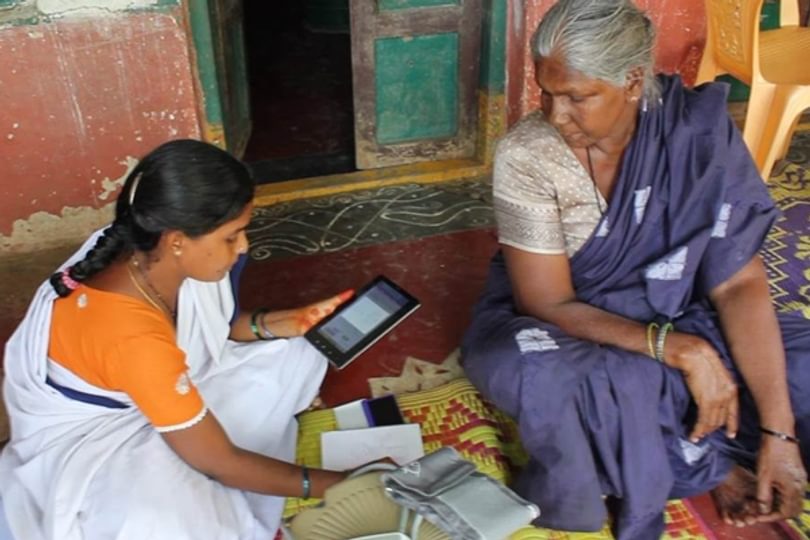
Does mobile technology have the ability to revolutionise the way healthcare is provided? In the latest in the Oxford Martin School’s current seminar series, academics from the George Institute UK discussed the potential uses – and challenges – of mHealth.
Dr Fred Hersch and Dr Gari Clifford examined the way in which mobile technologies can be used to monitor and manage non-communicable diseases (NCDs), such as heart disease and diabetes, which are predicted to double worldwide by 2030. “The impact of this is going to be enormous,” said Dr Hersch. “It will mean an estimated $43 trillion loss in economic output.”
He continued: “Health systems lack adequate finance and human resources; globally there is a gap of 2.5 million health workers. Systems are ill-equipped for dealing with these problems.
“But the world has changed in other ways and this is what’s so exciting. The expansion of mobile phones has created enormous opportunities and for the first time in history we can really start to think about bringing healthcare to the most remote corners of the earth.”
The past decade, he said, had seen a proliferation of small projects, such as text messaging to remind people to take medicine or to help them stop smoking, and that the debate around mHealth had shifted from “if” to “how”, with 5.6 billion people expected to own smartphones by 2019, many of these in developing countries.
An example of the potential of mHealth, he explained, was the recent SMARThealth project in India state of Andhar Pradesh. Community health workers are able to go out into rural communities and identify people at risk of cardiovascular disease using software that provides support in taking a personalised clinical decision. The patient can then be given advice about changing their lifestyle or referred for treatment. The scheme, which is about to go to a large-scale trial, also gives patients with smartphones the option to receive follow-up SMS support and reminders about taking medication or visiting their nearest clinic.
But Dr Hersch said technology was only part of the solution. “It’s a design problem and it’s really important that we work to understand the context, brainstorm ideas, work on solutions and evaluate them in a local context.”
Dr Clifford elaborated on the ways smartphones could physically monitor health, such as blood pressure monitors and stethoscopes that plug directly into phones, which can then record the data.
Speaking about the potential risks of mHealth, he said: “There’s the danger of a lot of re-inventing the wheel, developing yet another version of expensive Western healthcare. In some parts of Africa it may be a ratio of 50,000 people to one doctor, so we can’t build a system predicated on the idea that there’s a doctor looking at every single piece of data. What we need is a new model of healthcare.”
He said other challenges included risks to privacy, the potential for over-diagnosis, under- or over-regulation and the lack of scientific validation of many of the‘health’ apps currently available. A recent survey, he said, looked at 60 such apps and found “not one had any scientific grounding for the information they were feeding back to the user”.
But he concluded: “There is an enormous opportunity here for humans and machines to work together, and the opportunities far outweigh the risks.”
- Watch the video of the seminar - 'mHealth: smartphones as saviours?'
- Find out more about the Oxford Martin School's Healthcare Innovation programme at the George Institute